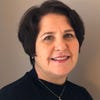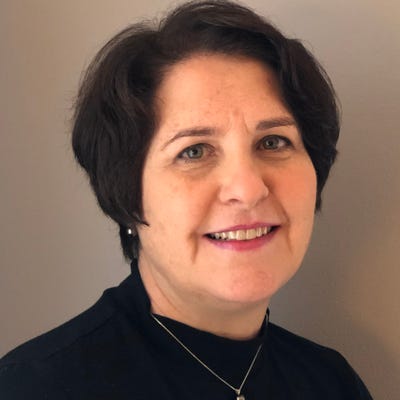Employee Experience: An HR Mindset for Today's WorkplaceEmployee Experience: An HR Mindset for Today's Workplace
An HR consultant shares ideas for transforming HR around an employee experience-centric approach.
January 20, 2021

So much of what we write about here at WorkSpace Connect evolves around the idea of creating a great employee experience, facilitated in large part, we believe, by the connected, collaborative workplace. But from an HR perch, what does this mean? How does an employee experience-centric approach differ from any other? And how can HR help shape a culture around employee experience?
With questions such as these in mind, I recently spoke with Mark Levy, an HR consultant and newly appointed to the board of advisors for MixR, a community-building platform for employees. Levy knows a thing or two about HR transformation, having worked in forward-looking HR departments at Best Buy, Levi Strauss & Co., and Gap before eventually landing at Airbnb with carte blanche to rethink HR. There he broadened the concept of HR to "employee experience" to jibe with customer experience. His thinking? "If you're clear with your employees about how you want them to show up for your customer, then the customers will get the support they need. And, if you connect the promise to the customer to the promise to the employee, then you'll have much more of a seamless way of looking across your entire ecosystem or community," he told me.
Based on what he learned at vacation rental company Airbnb and at natural-products sneaker maker Allbirds, where he went next, employee experience takes a mindset shift, Levy said. All leaders across functions that touch the employee have to think about employees in a seamless way, "just like you would think about a customer from making a reservation to getting their bags at the end of their flight," he explained.
Employee experience is about co-creation, too, and giving employees the opportunity for dialogue — "to listen to them genuinely, and have them be part of creating their destiny and helping you prioritize and design programs, processes, systems, and tools that will help them to their job more successfully," Levy added.
In 2020, the pandemic served as one proof point for the value of shifting from HR to employee experience, Levy said. For the most part, Levy said he found companies that already had adopted an employee experience mindset and approach were highly successful with mass remote work from the outset. Others, even cynics, soon learned just how much could get done even when people aren't under the same roof and control isn't so rigid. "The lessons learned," he said, "are that you have to trust your employees ... and embrace the messiness of it, find ways to genuinely care and support your employees, and you have to find ways to ask, listen, and then react."
Today with his clients, one of the phrases Levy said he uses a lot is, "You said, and we did." This is meant to convey a closing of the loop and letting employees know that you've taken heed of what they've said and taken action (assuming, of course, that that action is affordable or makes business sense), he explained. Applying a you said/we did approach can help establish good employee relationships that result in a more effective, productive workforce that's closer to customers and more engaged overall, he added.
This sort of best practice serves many purposes, including employee involvement in workplace decisions, and Levy shared examples of taking an employee experience approach to designing a new call center at Airbnb and a new office at Allbirds. At Allbirds, for example, the acquisition of new real estate led Levy and a cross-functional team involving food, facilities, safety, security, and environment to invite all employees to participate in redesign workshops or, if they couldn't attend, to provide feedback and input via a Google worksheet.
"We used our external brand pillars, which were comfort, design, and sustainability, as the ways in which we were going to collect data and move forward on our redesign of our workplace. And it really transformed what was a very generic, very much an 'I have my own desk situation' — to something much more evolved based on using the brand pillars and co-creating with our employees."
Although we didn't speak specifically about applying this approach to return-to-office planning, the you said/we did approach certainly applies. HR would do well to have an employee experience mindset in helping plan the hybrid workplace model that's shaping up for the future. As Levy said, "We need to learn what worked and what didn't, and what [employees] loved about working from home and what they missed about working in an office."





